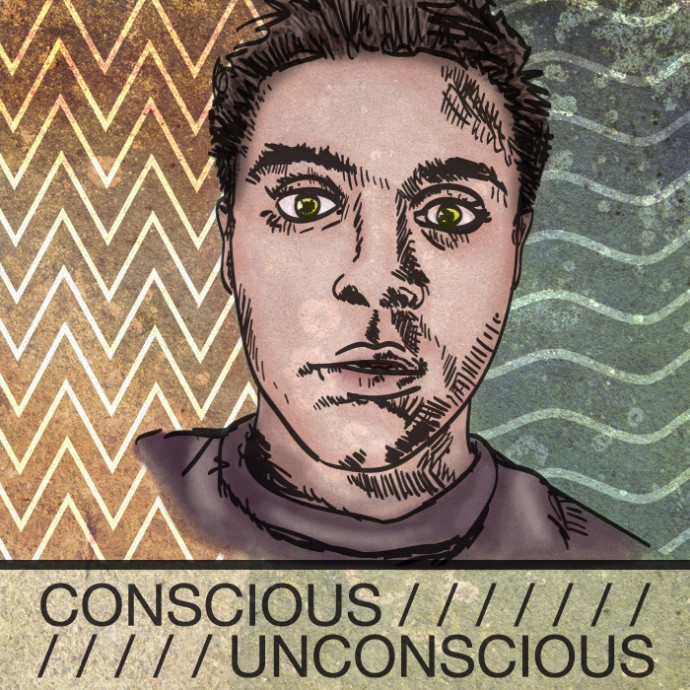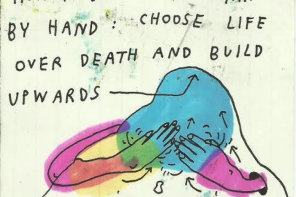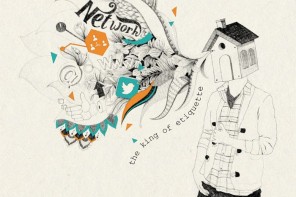Are we as human beings completely conscious of our surroundings? When we talk to people, is it possible to recognise the complete person in front of us, or do we only catch glimpses of others and ourselves? This master of communication discusses the difference between the conscious and the unconscious mind, and the importance of knowing when and how to communicate with them.
I was playing soccer as a child, and it was the first time that I was a goalie. Seeing as it was my first time in goal, I was a little nervous. Everyone’s playing fast and furious and all of a sudden the ball comes zooming at me a million miles an hour, and by instinct, without even thinking about it my leg shoots out, blocks the ball which goes bouncing away. I am the hero, and everyone’s going “This is great! We knew you’d be the right person in goal!” and I’m feeling fantastic. This happens a couple of times, and I’m feeling fantastic. Then, of course, somebody kicks the ball, there’s no one around and it’s kind of just rolling relatively slowly towards me and nobody could be bothered to run and stop it, cause, you know, I’ll stop it anyway, right? Only the most bizarre thing happens. I see it coming and I’m thinking about it, and I want to stop it. I want to stop it, and I want to stop it and I want to stop it, and it literally rolls right between my legs. I can’t do anything about it.
Why did that happen?
First of all, this idea of a conscious and unconscious mind – these are all metaphors we tell ourselves anyway because the truth is, when it comes to what the mind is and how it works, we are still in the infancy stages of discovery. With as many discoveries that we’ve made about the brain – especially in the last decade we’ve learned more about it than the rest of history put together – we’re still in the infancy stages of understanding the human mind. And to claim, therefore, that we know exactly how it all works is really arrogant in the greatest extreme.
The conscious mind is designed to do certain tasks like make decisions and strategic choices, analyse and plan etc. Essentially the unconscious mind is designed to put things into action. So as soon as my conscious mind tried to make my body move to block the ball it’s going to run it in a very clunky manner and that’s where problems start to occur, because it can’t move fast enough or smoothly enough to make it happen. There are some things we choose to do, and we know we’re doing it, and there are other things that kind of just happen without us having to think too much about it, whether that be your heart beating, or whether that is when you find yourself halfway through that second chocolate cake when you promised yourself you wouldn’t have any.
Not everyone thinks it’s important to talk to the whole person – there are some people out there who are very happy to speak only to your unconscious mind, such as advertisers. To me, it doesn’t really make sense, and here’s why. In education, there’s a difference between a regular teacher, and one of those exceptional teachers that can teach really complex skills in next to no time at all. One of the differences is the so-called better teacher is using proper communication, often without even realising, in order to get the knowledge to the place it needs to be – the unconscious mind! If a teacher thinks, “my job is just to help kids pass the exam”, which sadly a lot of teachers do – by saying “here’s a fact, here’s a fact, here’s another fact – now remember it.” then that doesn’t address the person very well. It just addresses the part of the person that’s going to have to deal with the exam! Not the part of the person that has to store information – that memorises things. Not that part of the person that is motivated, that finds enthusiasm, puts emotion into it, that actually focuses on it. It doesn’t deal with that part of the person that lives and breathes and runs that person’s body.
On the other hand, that teacher who sees his or her students as having all these different needs and gets the students excited and having fun helps their minds memorise and store the information more easily, and now the conscious mind has access to information much more quickly. Their confidence rises, and suddenly you have a “gifted” Child. They’ll be much more successful because the whole of them is being used. And really that’s where I see this kind of whole-person communication being of value. It’s getting results that normally should sound like they’re impossible, but getting them consistently because you’re taking account of every part of that person, and every point at which they could fail, and every point at which they could succeed are being addressed the right way.
If you’re only going to speak to the conscious mind, this is where the problems starts arising socially. Someone could mean the very best for you and speak to you in such a way that would annoy you so completely and as a result, something that could be very useful to you now gets rejected. So the message gets lost because they didn’t recognise that they were talking to a human being – a complete person – and the message only addressed a part of that person which was the part that happened to need this bit of information. The rest of you was ignored to the point where the message ended up being blocked and rejected. That’s not a very successful place to be.
We’re getting to a place in humanity, where you can communicate with the whole person on a day-to-day basis with your kids, with your friends, with your lovers and with anyone imaginable. And that’s where I think the world would really benefit from it. We can use it for art, use it for education, use it in sports, use it in business, use it in pretty much any endeavor that human beings can engage in. And that’s when I think that this seemingly sophisticated form of communication will really start emerging as a functional tool that people use in their day-to-day lives, and I think that we will really see a fundamental shift in society when people look at each other as more than this conscious mind that can do bad things, or things that we don’t want them to do. We suddenly see them as these rich and complex beings and we address the full complexity of that being and you have the tools that can do so very simply and easily. A lot of the problems, conflicts and issues that are facing us or challenging us as a society right now I think will have evaporated. Other issues, of course will take their place, but that’s what’s called a high-quality problem. I think this has a huge role to play in the bettering of society.







